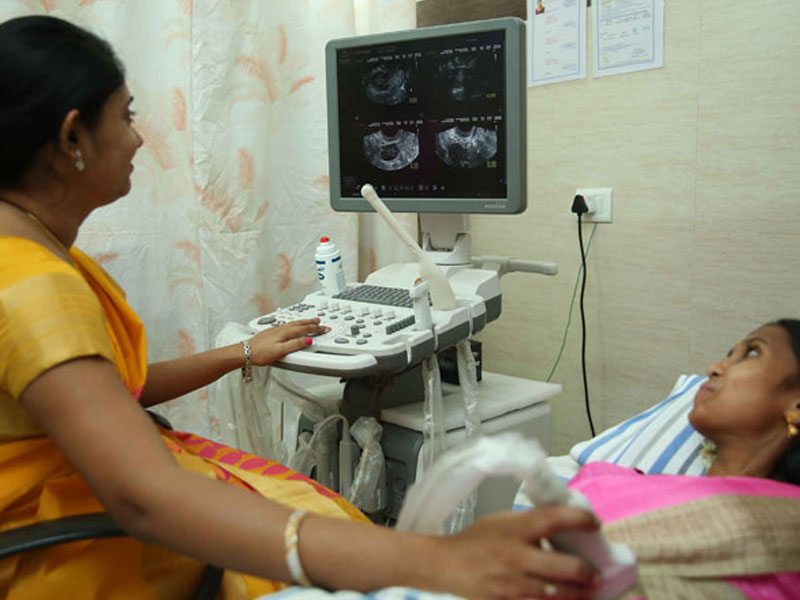
Repeated IVF Failure Treatment

• Light vaginal bleeding or spotting
• Cramping and painful menstrual periods
• Mild swelling of the breasts and particularly around the areola and the nipple
• Digestive disturbances because of diarrhea or constipation
• Feeling of Heart burn
• Urge to urinate
• Feeling Sleepy after having your meals
• First food cravings, a more number of foods but less nourishing
• Nausea, usually from the second week onwards
• Vomiting, especially after waking up
• Abhorrence of food, tobacco and certain smells
• Thin endometrial it means it measures less than 9mm
• Scare present in the uterine cavity
• Polyps and uterine fibroids
• Immunological Dysfunction
• Chromosomal abnormalities in the embryo
• Egg Aneuploidies missing or extra chromosomes in the egg
Before Implantation failure and in the session of their next IVF attempt, these implantation problems should be evaluated before processing the next IVF cycle. The tests needed includes:
• Evaluation of the anatomical structure of uterus, so the health care provider will take some tests and they are,
• Sonohysterogram
• Hysteroscopy or Pelvic MRI
• Hysterosalpingogram (HSG)
• Dye X-ray
These tests easily determines the small lesions due to scaring, polyps or fibroids in the uterine cavity.
• Ultra sound examination
This test can help to find out the endometrial thickness and measured the endometrial thickness. So the result of endometrial thickness is,
• Less than 8mm means poor endometrial thickness
• Between 8mm to 9mm indicates endometrial thickness is intermediate
• Greater than 9mm indicates endometrial thickness is ideal
Then if endometrial thickness is less than 8mm means do not transfer the egg in to the
uterus
• Natural Killer cell activity (NKa)
This test can help to find out the Autoimmune and Aloimmune causes of Immunological Implantation Dysfunction. And this test can give the detailed evaluation of immunological abnormalities
• Test for molecular and biochemical factors of endometrial. This helps to measure of various endometrial biochemical and molecular factors for implantation process
1. Repeated hysteroscopy
The health care provider will insert the hysteroscopy device in through your vaginal opening. It is moving it through the cervix and then into the uterus.
Then the liquid or carbon dioxide gas will be gently sent into your uterus through the device to clear the uterine cavity.
The light and camera on the end of the hysteroscopy allows the physician to see the uterus and fallopian tubes. This is help to find the problem of uterus related to IVF failure.
2. Myomectomy:
A Myomectomy is an operative procedure; it helps to remove your uterus fibroids.
For those who have symptoms like fibroids and want to have children in the future, Myomectomy is one of the best treatment.
• Abdominal Myomectomy
• Laparoscopic Myomectomy
• Hysteroscopic Myomectomy
3. Endometrial stimulation
Endometrial stimulation helps to treat the causes of IVF failure. It can treat poor endometrial lining or a genetically abnormal embryo. Endometrial stimulation may increase expression of genes.
4. Immunotherapy
Immunotherapy is more useful for immunological factors in IVF failure. Immunotherapy is used to increase birth rate. Then the selective immune therapies are Intralipid (IL), steroids like dexamethasone and prednisone, heparin therapy.
5. Preimplantation Genetic Screening (PGS)
Preimplantation Genetic Screening (PGS) is one of the genetic tests performed on embryos produced through IVF. This genetic procedure gives information about embryos' genetic health to help your care team select the best embryo for transfer and to improve your chance of achieving a successful pregnancy.
6. Assisted Hatching
Women who have IVF failure or have a poor prognosis for IVF, then your physician may recommend a technique known as Assisted Hatching. Assisted Hatching is an advanced scientific technique that involves using a laser to gently thin the outer shell of the egg and it is called the zona. In some cases, mainly in old age women, it is thought that the thickness of the zona can impede implantation. If the embryo can 'hatch' out of the shell easily, it may have a good chance of implanting inside the uterus.
7. Zygote Intra Fallopian Transfer (ZIFT)
ZIFT combines In Vitro Fertilization (IVF). Eggs are collected and stimulated using IVF methods. Then the eggs are mixed with sperm in the lab. Fertilized eggs that mean zygotes are then laparoscopically returned to the Fallopian Tubes where they will be carried into the uterus. The goal is for the zygote to implant in the uterus and develop into a fetus.
8. Co-culture
The Co-culturing technique has also been utilized in human IVF. This priming procedure is thought to enhance growth factors in the endometrial tissue and hence promote and help the implantation.
9. Blastocyst transfer
A blastocyst is a human embryo that's 5, 6 or 7days old. Until recently, day-3 embryos were routinely transferred into the uterus during IVF treatment. Most physician now believe that transferring better-developed embryos.
10. Cystoplasmic transfer
Cystoplasmic transfer which is especially useful in repeated IVF failure and in women of older age. It is the donation of healthy cytoplasm from fertile donors to patient's eggs. This technique is most beneficial in older patients whose eggs have lost the ability to function normally as well as younger patients with unexplained infertility and recurrent implantation failure. It is also benefit to patients suffering from mitochondrial disorders.
11. Salpingectomy
Salpingectomy is the best method to treat the severe and irreversible tubal factor sterility that has experienced repeated failure of IVF due to embryo non implantation. This procedure also reduces the number of IVF attempts needed to obtain pregnancy.
We at Sakthi Fertility provide all under one roof. It serves as one of the best centers for assisted reproductive technology treatment in udumalpet, Coimbatore and many infertile couples are benefitted with our fertility treatment and have a complete family. Sakthi Fertility centre has skilled specialists in infertility treatment, Pollution free environment, innovative financing programs, and patient friendly and provides best services to fulfil the patient's dream of having a baby. We at Sakthi Fertility have taken a challenge of treating Recurrent/Repeated has treated multiple number of Recurrent/Repeated IVF failure and have excellent results in Udumalpet, Pollachi, Palani, Coimbatore, Tamilnadu, India region.
For More Information: +91 96 26 200 600
Consult Us
We are here to answer any questions about your fertility treatment and we'll respond as soon as we can.
















.png)



.png)
.png)
.png)

.png)
